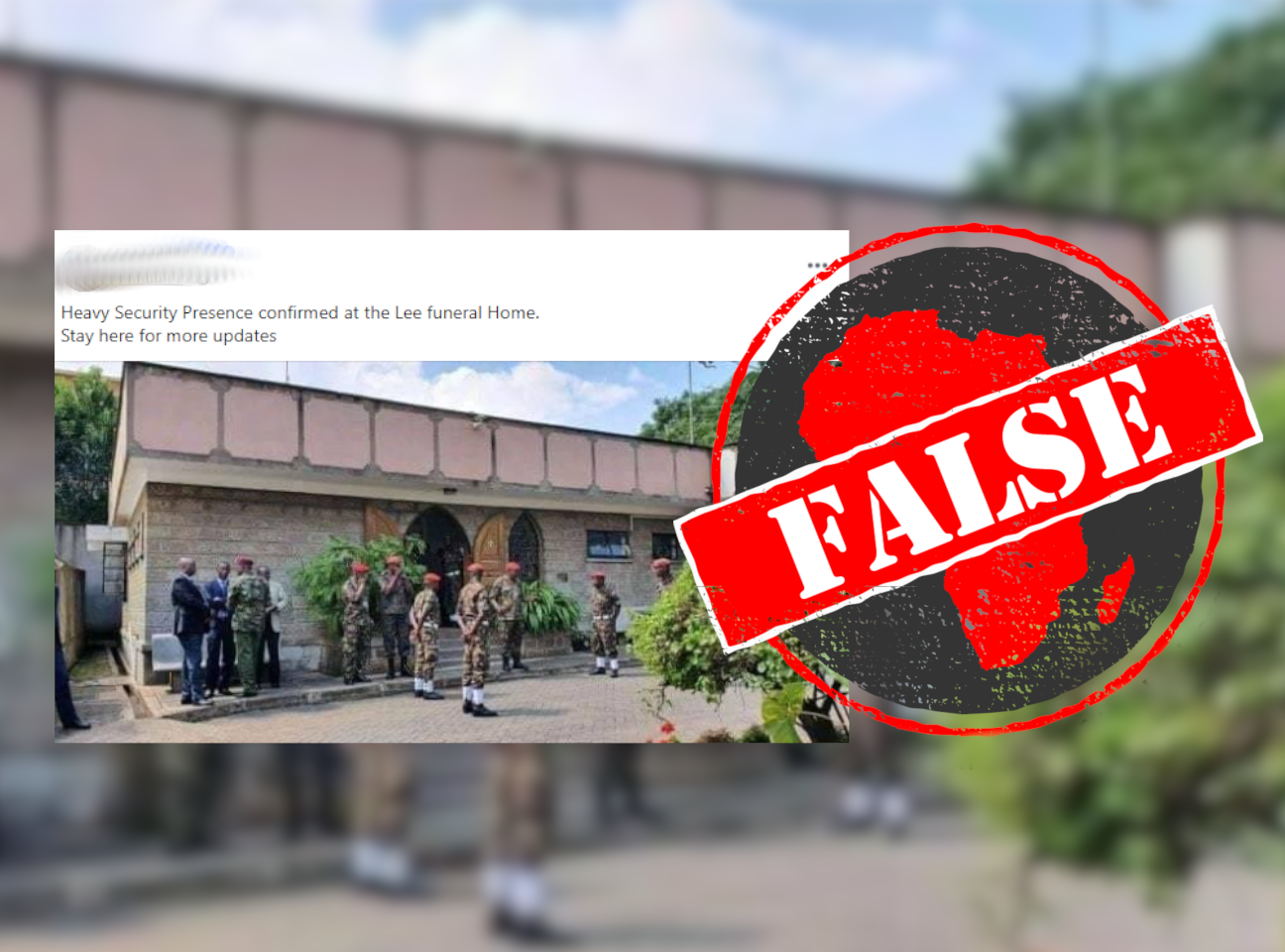Rumours that an unknown “VIP” had died spread on social media in Kenya in March 2021.
One Facebook user claimed on 19 March that there was “heavy security” at Lee Funeral Home in the capital Nairobi.
“Heavy Security Presence confirmed at the Lee funeral Home. Stay here for more updates,” the post said.
Another user posted: “Heavy security at lee funeral home.”
“Security beefed up at lee funeral home as they expect a VIP client ... Who could it be,” read another post, shared in a group with nearly 40,000 followers.
All the posts include the same photo of soldiers outside the funeral home. But was there heavy security there on 19 March, because of a famous death? We checked.

Photo from 4 February 2020
On the day the photo was posted on Facebook, a news reporter with Kenyan newspaper the Nation posted a video on Twitter, with the caption: “Nothing is happening at Lee Funeral Home … no VVIP security.”
“There’s no security, someone is lying [saying] there’s security, there’s nothing of the sort,” a voice says in the video.
A reverse image search shows the photo was first published on 4 February 2020 on the Tuko news website. It illustrated an article about the death on the same day of former president of Kenya, Daniel arap Moi.
His body was kept at the funeral home in advance of a state funeral.
The photo was credited to Bebeto Ogutu. Muyela Roberto, the journalist who wrote the article, also tweeted four photos, including the one shared on Facebook, and credited all four to Ogutu.
The tweet read: “Military takes over at Lee Funeral Home.”
Tuko News managing editor Irene Majale also confirmed to Africa Check that Ogutu took the photo on 4 February 2020.
“It was our photo. It was taken by the video team after Moi’s death,” she said.
Republish our content for free
For publishers: what to do if your post is rated false
A fact-checker has rated your Facebook or Instagram post as “false”, “altered”, “partly false” or “missing context”. This could have serious consequences. What do you do?
Click on our guide for the steps you should follow.
Publishers guideAfrica Check teams up with Facebook
Africa Check is a partner in Meta's third-party fact-checking programme to help stop the spread of false information on social media.
The content we rate as “false” will be downgraded on Facebook and Instagram. This means fewer people will see it.
You can also help identify false information on Facebook. This guide explains how.


Add new comment